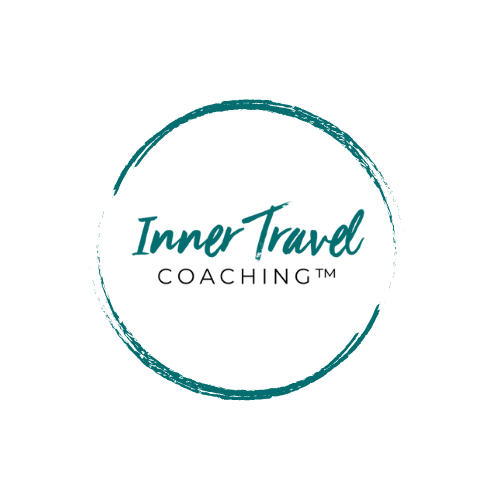
Cracking the Code: Hormone Therapy (HT) vs. Hormone Replacement Therapy (HRT) for Menopause
Ohhhh menopause. It’s like your body’s version of another awkward teenage phase, but with more wisdom and less patience for BS. We know it’s a time full of questions and maybe a few exasperated sighs. That’s why we’re here to help clear up the confustion around Hormone Therapy (HT) and Hormone Replacement Therapy (HRT), so you can move forward with confidence.
So if you're ready, let's dive in.
Hormone Therapy (HT) vs. Hormone Replacement Therapy (HRT): What’s the Difference?
First things first—let’s clear up the terminology. Hormone Therapy (HT) is the modern term for what many used to call Hormone Replacement Therapy (HRT). This treatment helps ease menopause symptoms by supplementing estrogen and, if you have a uterus, progesterone.
We now often refer to it as "Menopause Hormone Therapy" (MHT). This term better reflects that menopause is a natural part of life, not something that needs “fixing.” So whether you hear HT, HRT, or MHT, we’re talking about the same supportive treatment.
Does Hormone Therapy (HT) Actually Work?
Think of Hormone Therapy (HT) as your body’s bestie during menopause. By replenishing essential hormones, it can significantly improve your quality of life. Here’s how it can help (knowing everyone is unique and thus your body's response is unique too!):
Here’s what it can potentially do for you:
- Cooling Down Hot Flashes and Night Sweats: MHT is one of the most effective treatments for hot flashes and night sweats, which are common and can be really bothersome.
- Easing Vaginal Symptoms: MHT helps with vaginal dryness and pain during sex. It can also help with some bladder problems by improving the health of vaginal and urinary tissues.
- Protecting Bones: MHT can prevent bone loss that happens during menopause, reducing the risk of osteoporosis and broken bones.
- Improving Mood: The evidence varies, but MHT might help some women feel better mood-wise and mentally. A key factor for improvement in mood can also be linked to reducing sleep disruption from hot flashes and night sweats.
- Lowering Colon Cancer Risk: There's evidence that MHT may lower the risk of colon cancer, but that's not the main reason it's used
Understanding the Risks of Menopause Hormone Therapy
While HT is beneficial, it’s important to be aware of potential risks. These risks depend on factors like how you take HT (pill, patch, etc.), your age, and your overall health. In considering treatment, there are some risks to be aware of, although they're pretty rare (happening to between 1 in 1,000 and 1 in 10,000 people).
These risks include:
- Stroke or Blood Clots: These risks are lower with skin-applied estrogen.
- Dementia: There’s a risk in women over 60.
- Breast Cancer: Using certain types of HT for more than five years can increase this risk.
- Heart Disease: Starting HT after age 60 or more than 10 years after menopause can raise this risk.
According to the North American Menopause Society (NAMS), for women younger than 60 or within 10 years of menopause who have no contraindications, the benefits of treating menopause symptoms and preventing bone loss likely outweigh the risks. Personalized plans are crucial to balance benefits and minimize risks.
What’s the Safest Hormone Therapy Option?
The safest hormone therapy option is unique to you since it varies based on individual health and family history. Here are some considerations:
Transdermal Options (Patches, Gels, Sprays): These deliver hormones through the skin, directly into the bloodstream, and avoid some risks associated with oral HT.
Personal Preferences: Some women prefer patches or gels, while others opt for pills. Your healthcare provider can help you find the best option for you.
Estrogen-Only or Combined Menopause Hormone Therapy?
The decision between estrogen-only and combined hormone therapy (with progesterone) depends on whether you’ve had a hysterectomy. Estrogen-only therapy is suitable for those without a uterus, while combined therapy is necessary for those with a uterus to reduce the risk of endometrial cancer.
When to Start and How Long to Use Hormone Therapy
Timing matters. Starting HT early in your menopause journey can lower some risks. Your personal and family health history, including conditions like heart disease, breast cancer, stroke, and blood clots, will guide your healthcare provider in recommending the best hormone therapy for you.
Talking to your healthcare provider about when to start and how long to use HT is essential. They’ll tailor your plan to your unique needs and adjust it as your health evolves. Regular check-ins are crucial for navigating HT safely.
Brain Fog Busters:
We get it—menopause can make it hard to focus and remember things. Here are the essential points to keep things clear:
- Hormone Therapy (HT) and Menopause Hormone Therapy are the updated terms for Hormone Replacement Therapy (HRT). It helps ease menopause symptoms by supplementing estrogen and, if you have a uterus, progesterone.
- Menopause Hormone Therapy (MHT) is the most effective treatment for menopausal symptoms and has been shown to prevent bone loss.
- There are real but rare risks associated with HT that can vary depending on age, type of therapy, dosage, duration of treatment, and individual health.
- Your healthcare provider will tailor a treatment plan to meet your individual needs and make adjustments based on changing health circumstances or responses to treatment.
 Love what you read here?
Love what you read here? Send to a friend or subscribe for more posts, perks, and inspiration!

























0 Comments